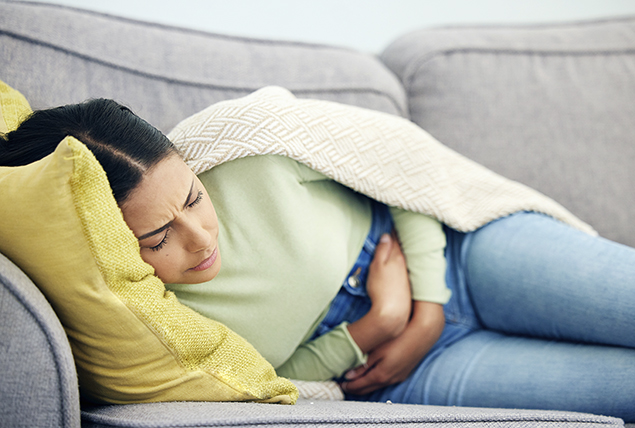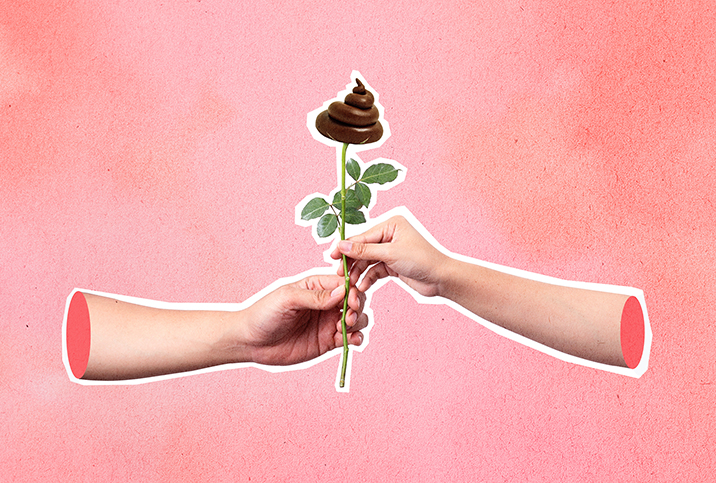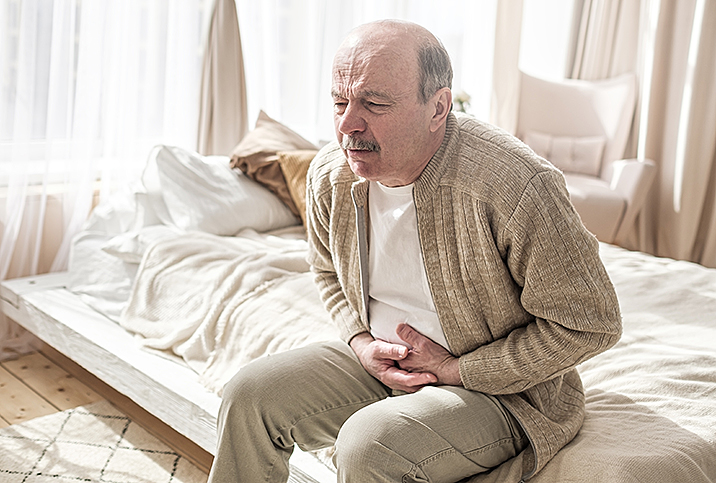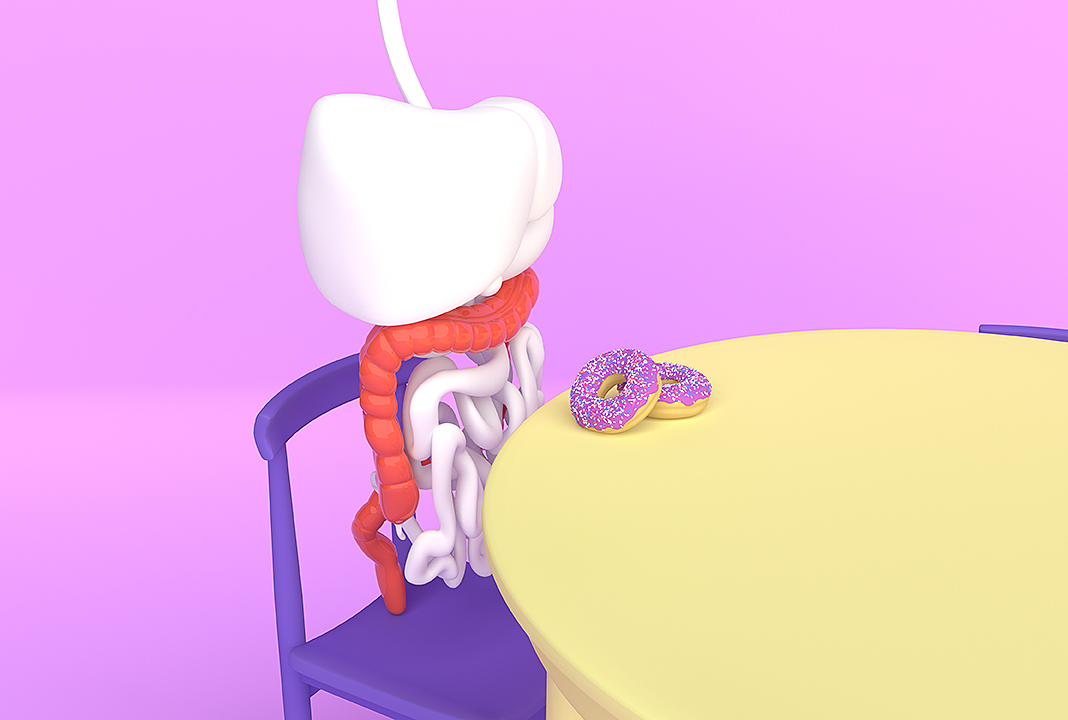What's the Link Between IBS and Depression?

Key Points
- People with irritable bowel syndrome (IBS) are much more likely than the general population to experience depression and anxiety.
- Although mental health challenges can be a symptom of IBS, many people have psychiatric disorders independent of their gastrointestinal condition.
- Treating IBS and depression requires a comprehensive approach that addresses the brain and body.
Crippling depression and anxiety can be symptoms of irritable bowel syndrome (IBS), but the three are frequently distinct, co-occurring disorders that research suggests are intertwined. Though IBS is incurable, understanding these conditions' complex interplay may be a crucial step toward acceptance and coping.
We asked three experts to discuss why gut health can wield equal power over the bowels and brain and, most importantly, how to break the cycle of IBS and depression.
How many people with IBS have depression or anxiety?
About 20 percent of the United States population will experience depression—an umbrella term for a handful of conditions such as major depressive disorder and persistent depressive disorder—at some point in their life, according to the Centers for Disease Control and Prevention (CDC).
Additionally, about 20 percent of U.S. adults have an anxiety disorder, per the National Alliance on Mental Illness (NAMI).
Among the 25 million to 45 million people in the U.S. with IBS, those rates are notably higher, according to research.
One 2023 study of more than 1.2 million IBS patients at 4,000 U.S. hospitals across three years found that more than 38 percent and 27 percent experienced anxiety and depression, respectively. The researchers also found people with IBS were significantly more likely than those without the condition to have other psychiatric disorders, such as bipolar disorder or eating disorders, and to have a history of suicidal ideations or actions.
"Moreover, about 60 percent of people with IBS will experience an episode of major depression—a leading cause of disability worldwide—at some point in their life," said James Jackson, Psy.D., the director of behavioral health and a professor at Vanderbilt Medical Center in Nashville.
By comparison, roughly 8.3 percent of the U.S. adult population experiences a major depressive episode in their lifetime, per the National Institute of Mental Health (NIMH).
The brain-gut axis (or brain-gut microbiome axis) may be partially responsible, according to research carried out in Australia between 1997 and 2009.
What is the brain-gut axis?
The gut, known as the "second brain," houses the body's bi-directional signaling pathway between the gastrointestinal tract and nervous system, said Supriya Rao, M.D., a managing partner at Integrated Gastroenterology Consultants, the director of medical weight loss at Lowell General Hospital and a clinical assistant professor at Tufts University School of Medicine in Boston.
"It also produces about 90 percent and 50 percent of the body's serotonin and dopamine—hormones crucial for managing mood, pain and energy levels—respectively," she said. "Basically, what that means is the brain can control and affect our gut function, and the gut can release a bunch of different hormones and such, which affect how our brain works."
The cause of IBS isn't fully understood. It's believed to be multifactorial, resulting from issues with the brain-gut signaling pathway, external factors such as stress and chronic dysbiosis of the gut microbiome, a community of trillions of primarily beneficial bacteria, according to the Canadian Society of Intestinal Research.
IBS isn't thought to be genetic. Even so, people with IBS are more likely than the general population to have certain genetic variations that are also associated with certain mental health conditions, including anxiety, according to a 2021 study.
Similarly, most scientists believe biological, psychological and environmental components—genetic variations and an imbalance in neurotransmitters included—likely contribute to anxiety and depressive disorders, according to the CDC.
Recommended
- A Dating Guide for People With IBS: Dating with IBS can be complicated, but it is possible.
- Navigating Sex With IBS: Bowel troubles can diminish your libido, but sex doesn't have to be off the table. Reframing your approach to sex can help rekindle your desire.
- Do Antidepressants Interfere With Your Sex Life?: Some IBS and depression medications, especially selective serotonin reuptake inhibitors (SSRIs), can cause sexual issues, including erectile dysfunction. Finding the right mix of meds can improve your performance–and satisfaction.
How can IBS and depression affect your sex life?
IBS can be all-encompassing and debilitating, affecting all facets of life, from work to emotional and sexual health, said Tiffany Taft, Psy.D., a GI-specialized clinical psychologist at Oak Park Behavioral Medicine and a clinical advisor at Ayble, who practices in Oak Park, Illinois.
"You're always worried about having to run to the bathroom or being near a bathroom or not being able to eat the food you like," she said. "If you're constantly thinking about that part of your life, it's really difficult for people to even wrap their head around anything sexual, honestly."
Suswati Basu, an editor and host of the "How to Be…Books Podcast," who resides in London, was diagnosed with IBS during the COVID-19 pandemic.
She has two rare neurological conditions that cause progressive symptoms ranging from nerve damage and the inability to walk unassisted to depression and non-epileptic seizures. Even with those, her experience with IBS felt most "exposing," she said.
Besides grappling with a new set of sometimes debilitating symptoms, the diagnosis prompted her to "lose control" of her eating habits and gain a substantial amount of weight within six months.
"As a person with a history of eating disorders, it felt terrifying," she said. "I made peace with the fact that I may not be able to walk properly anymore or use my arms to their full degree—but not accepting what I saw in the mirror anymore affected my relationships and how I perceived myself."
Taft said depression—as a primary cause of sexual dysfunction and disability worldwide—can likewise profoundly impede intimacy. So, too, can the stigma around IBS and mental health issues.
"That sense of shame and stigma affects some people's body image very deeply and they just begin to feel broken," she said.
For people such as Basu who grapple with IBS, depression and anxiety simultaneously, the experience can feel overwhelming, if not insurmountable.
"It's very difficult to want to have intimate relationships when you're feeling unwell a lot of the time and being in pain," she said.
Can depression make you sick? And can IBS give you depression?
Most scientists agree depression and anxiety don't cause IBS, Jackson said. However, the two likely have a shared pathogenesis, according to a 2018 review.
Psychiatric conditions are known to raise the risk of other illnesses and exacerbate symptoms of existing disorders, such as IBS, according to NIMH. In part, this is because of adverse effects on the gut microbiome, Rao explained.
Similarly, IBS isn't usually the sole cause of depression or anxiety, though its physical and emotional implications can contribute to or exacerbate mental health problems.
"Alterations in our gut bacteria lead to alterations in neurotransmitter production," Rao said. "When that gets sent back to our brain, it alters our mood and the brain sends signals to alter our gut motility. It may slow things down, making you constipated, or speed things up, giving you diarrhea.
"It can give you visceral hypersensitivity, meaning the nerve endings are more hypersensitive, causing pain. It's all intricately interwoven."
Besides its effect on the gut microbiome, IBS symptoms can cause intense stress and chronic hypervigilance, prompting many people with the condition to self-isolate, and forego enjoyable and health-promoting activities, Jackson noted. Symptoms can lead to difficulties with motivation and concentration and feelings of hopelessness.
All of this can create a vicious cycle.
"These sorts of symptoms can result in self-management difficulties and inattention to diet while also making it hard for people to believe that they can thrive with IBS instead of just surviving," he said. "A belief that, sometimes, can become a self-fulfilling prophecy."
The Sexual Health Survival Kit for Women: Prepare yourself for all of the twists and turns you may face in your sex life. Who knows when you may receive an appealing invitation from a sexual partner or when troubling symptoms could strike?
How can you cope with IBS and depression?
Treatments for IBS may help to alleviate depression and anxiety, and vice versa.
"There's a huge overlap," Rao said. "If you start treating your gut health, there's potential that your depressive and anxious symptoms may improve as well."
Three ways to manage IBS and depression include medication, therapy and lifestyle changes.
1. Medications
Doctors frequently prescribe antidepressants to help manage IBS's physical and psychological symptoms.
"In very low doses, antidepressants such as tricyclic antidepressants and selective serotonin reuptake inhibitors (SSRIs) can curb the 'visceral hypersensitivity' associated with IBS," Rao said.
This may help alleviate abdominal pain, discomfort, constipation and diarrhea. In higher doses, the same medications can help to assuage depression.
2. Therapy
Taft noted cognitive behavioral therapy (CBT), acceptance and commitment therapy, and gut-directed hypnotherapy are all effective means of treating IBS and depression.
"There's probably over 50 research studies looking at these treatments at this point," she said. "They can be pretty effective for about 60 percent to 70 percent of people with IBS."
Talk therapy can be helpful for learning to navigate life and relationships with one or more chronic conditions.
3. Lifestyle changes
"Optimizing your lifestyle is equally important for managing IBS and mental health," Rao said.
This includes exercising regularly, prioritizing sleep and eating a balanced, high-fiber diet low in animal products. Stress management techniques, including yoga, mindfulness and meditation, can be helpful.
Along with therapy, self-care has been an essential tool for Basu.
"Exercise is important, and when I can, I find ways to stretch, do tai chi and walk," she said. "I can, of course, recommend techniques like mindfulness and meditation, but more than anything, remember to keep enjoying the little things like art, music or reading a book to learn to calm your mind."
Should you take probiotics for IBS and anxiety or depression?
Many companies and influencers tout probiotic supplements as a cure-all for multiple conditions related to the gut, but there's not much evidence they work, according to Rao.
"There are very specific situations where probiotic supplements are helpful, but overall, GI societies don't recommend probiotics for most people, especially with IBS-type symptoms," Rao said. "They're really expensive and there's no data to show that they actually change much."
Taft said studies suggest probiotic supplements don't perform much better than placebos in treating anxiety or depression.
However, research does indicate that fermented foods such as kimchi, miso, pickles, sauerkraut and kefir—all-natural probiotic sources—can benefit the gut and brain.
"One potential reason is that probiotic supplements can contain billions upon billions of strains of bacteria," Rao said. "While these may benefit some people, they can throw others' gut microbiomes off balance, causing unpleasant symptoms without any marked benefit. On the other hand, fermented foods are more 'self-regulated.'"
Additionally, these natural foods are rich in phytonutrients, such as antioxidants and fiber, which are known to promote gut health.
"Fermented foods are super healthy and pivotal in maintaining good gut health," she added.
The bottom line
Crippling depression and anxiety can be psychologically and physically painful, as can IBS. But there is hope. Understanding how these conditions interact and taking a comprehensive approach to treatment can help alleviate suffering, break the IBS and depression cycle, and improve quality of life.
"It can be life-changing, and no doubt, it'll be incredibly daunting and confusing at the beginning, but it will get better," Basu said. "The main thing is to get to know your body well and listen to the cues. It will tell you what you can and cannot manage."


















